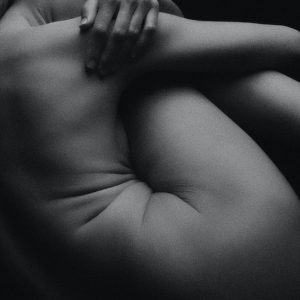
Body odour – are hormones to blame?
Have you noticed a recent change in your body odour? Hormonal changes that occur before menopause could be the culprit…
Body odour is a caused by a chemical reaction between the bacteria on our skin (trillions of bacteria naturally co-exist on our skin!) and our sweat. Contrary to popular belief, it is not the sweat itself that smells but the interaction between our sweat and these bacteria that causes what is commonly known as ‘’B.O’’.
So what makes us sweat more?..
The obvious answer is physical activity, but hormones also play a role here (think hot flushes, night sweats and the natural temperature fluctuations of your menstrual cycle).
If you’re noticing a change in your odour, or an increased need to shower or use deodorant, then hormonal changes could certainly be the cause.
During peri-menopause our estrogen slowly drops. Estrogen is one of the chemical messengers in our body that helps to regulate our body temperature via the hypothalamus in the brain. A sharp drop in estrogen incorrectly sends a signal to the hypothalamus in our brain that our temperature is rising causing us to sweat more than usual. This is our bodies natural way of trying to cool us down. The same mechanism is at play when we experience hot flushes and night sweats, which is why it can happen at any time of the day or night.
Anxiety, another symptom of menopause, has a similar effect but there is an extra factor at play. The sweat produced as a result of anxiety occurs in the larger sweat glands found primarily under the arms and contains nutrients that the bacteria feed off to produce the smell.
So now that we know all that delightful news what can we do (apart from wash more?)..
Whilst hormonal fluctuations are a natural part of life, there are some modifications we can make through diet and lifestyle to smooth the ride;
Diet
A balanced nutritious diet can go a long way to helping promote hormonal equilibrium and boosting your overall health. A diet rich in plants, plant-based proteins, good healthy fats and complex carbohydrates, particularly those containing the following nutrients will help significantly;
- Phytoestrogens are plant compounds that exert weak estrogenic effects on the body, helping eliminate body odour and other menopause symptoms. Foods to include: Soy, alfalfa, oats, tomatoes and flaxseed
- Zinc deficiency is often associated with profuse perspiration, which gives rise to body odour changes. Foods include wheat germ, pumpkin, squash and oysters
- Magnesium deficiency has been linked with excessive body odour. Try to incorporate more spinach, nuts, seeds and wild-caught low-mercury fish such as wild salmon
Look after your microbiome! It’s well understood now that we have bacteria all throughout and on the surface layer of our body (ie. our skin). In a healthy individual, most of this bacteria on our skin is good mixed with a little bad (no one can eliminate the bad bacteria entirely, nor should we want to). Research is currently underway to understand more about the types of bacteria that cause unpleasant smells (B.O.) but until that research is finalised the general consensus is that we should nourish a healthy microbiome rather than try to eliminate bad bacteria… this means a healthy balanced diet and avoidance of antibacterial soaps (refer to Personal Hygiene section below).

For a microbiome health boost you might like to try my latest recipe for Organic Bone Broth.
The old adage of ‘you are what you eat’ also applies to our odour. Sulphur rich foods transfers through our sweat glands and creates, well, a sulphurous smell (think rotten eggs). A little of these foods is OK, but moderation is key for the following;
- Onions
- Garlic
- Cabbage
- Broccoli
- Cauliflower
- Red meat
Other common dietary triggers of bad body odour are:
- Monosodium glutamate (MSG)
- Caffeine
- Spices like curry or cumin
- Hot sauce or other spicy food
- Alcohol
Regular Exercise
Whilst it might be tempting to reduce the level of sweating by reducing exercise, the opposite is actually true. Exercise has been proven to be highly effective in counteracting and resolving hormonal imbalances as well as other menopausal symptoms such as mood swings, anxiety and sleep disorders. Between 75-150 minutes per week is all you need, with a good mix of low to high intensity and weight bearing activity.
Stress Reduction
Manage anxiety levels through holistic means such as yoga, breathing techniques and mindfulness meditation. For inspiration or those that have never tried yoga before you might like to try this simple short practice
Personal Hygiene
- Avoid antiperspirants. Sweating is one of the crucial detoxification and self-regulating processes in the body. Instead use a natural aluminium & fragrance free deodorant containing bicarb soda that prevents the sweat reacting with the bacteria on your skin
- Keep your skin clean by taking a daily bath or shower with pH neutral body wash. Focus on the T-zone ie. areas where you sweat the most, like your armpits, feet and groin area, but avoid using any soap or body wash on your vagina as this can disrupt the delicate bacterial balance. Simply washing your vagina with water is enough.
- Keep your armpits hair-free, so sweat evaporates quickly and doesn’t have as much time to interact with bacteria. Hair can be a breeding ground for bad bacteria.
- Wear loose-fitting clothing made of cotton. This allows your skin to breathe.
Complementary therapies
Consider a supplement: this is best done under the guidance of a practitioner as there are many types and each persons menopause journey is unique. To start a conversation or to book a consultation click here
Photo by Alexander Krivitskiy on Unsplash







Sorry, comments are closed for this post.